mythology

Shermer and McHenry discuss: how organisms get to islands from mainlands • how lemurs get to Madagascar • rafting sweepstakes vs. land bridges. • Alfred Russel Wallace and Island biogeography • Zoologist Philip Sclater • Ernst Haeckel to Hitler • Alexander von Humboldt • Johann Wolfgang von Goethe • Land of Mu and Atlantis • Ignatius Donnelly, Atlantis • Madame Blavatsky • Hermes Trismegistus and Hermeticism, Rosicrucians • pseudohistory, pseudoarchaeology and mythology.
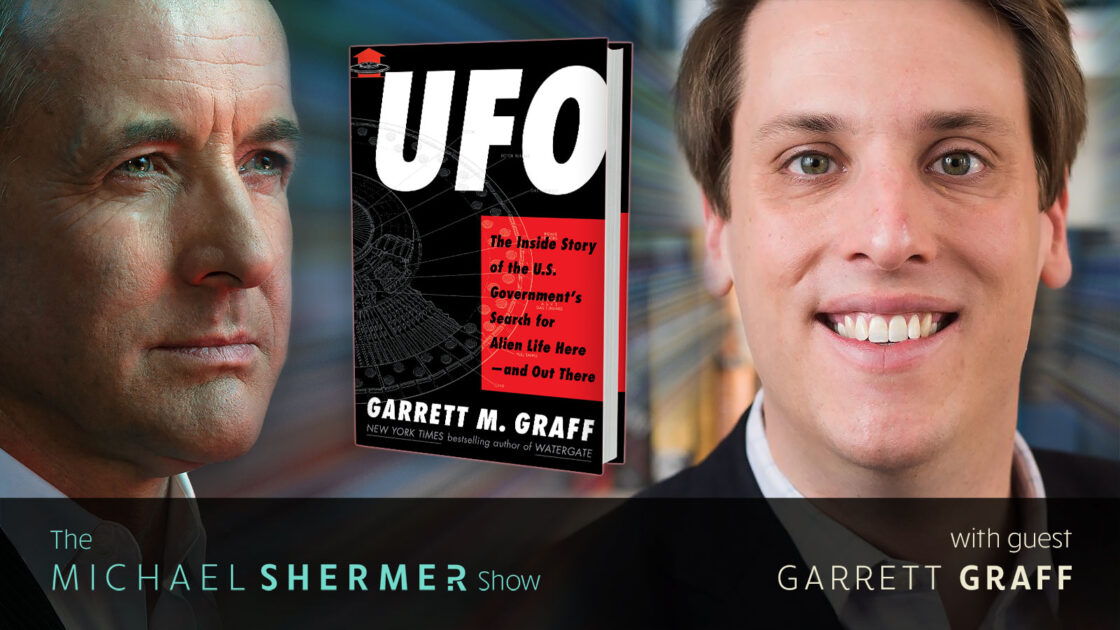
Shermer and Graff discuss: national security • how long government secrets can be kept • cultural context for UFO sightings • why David Grusch’s testimony could be accurate but still not represent alien contact • Kenneth Arnold • Roswell • The Fermi Paradox • why 90-95% of all UFO sightings are explainable • anomalies and how to treat them • Avi Loeb (Galileo Project) • President Clinton’s investigation into UFOs • UFOs as a modern myth or religion.
A major theme running throughout Ancient Apocalypse is Graham Hancock‘s persecution complex. Archaeologists are picking on him, he says, because “I am trying to overthrow the paradigm of history.” Hancock fails to understand that “just asking questions” is unlikely to create a scientific revolution. Especially when he appeals to a hypothetical comet catastrophe that violates the laws of physics, contradicts astronomical data, ignores the geological record, and defies logic. When scientists ask to see data, it’s not persecution. It’s science.
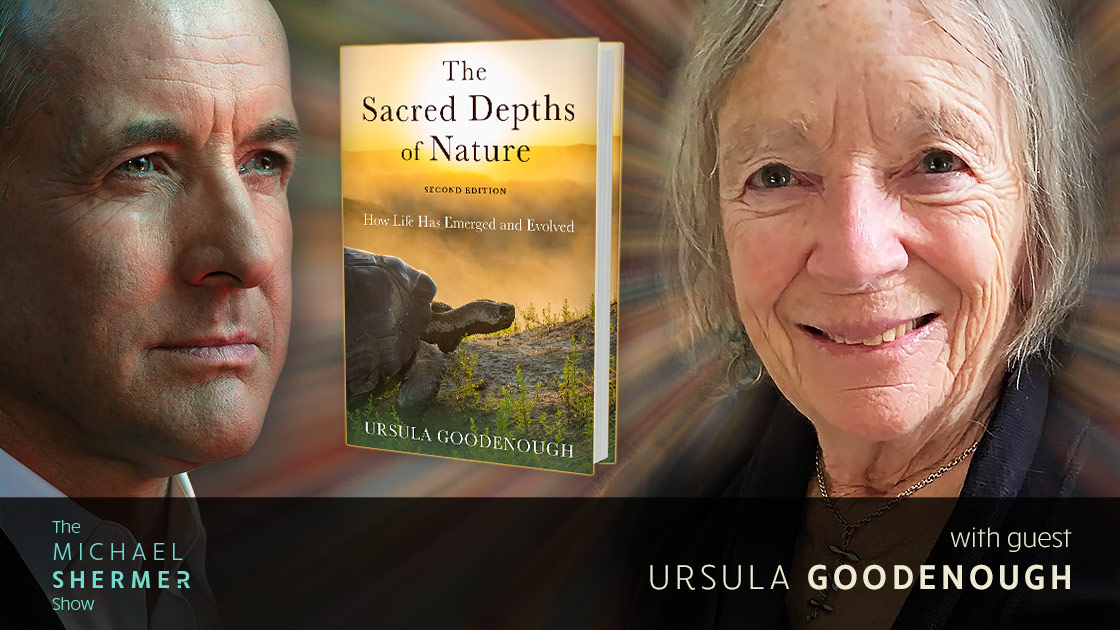
Shermer and Goodenough discuss: origins of her personal beliefs • origins life, RNA, DNA, consciousness, language, morality • myths and religions • what it means to be “religious” • religious naturalism • where the laws of physics came from • why the universe seems so strange • chance and evolution • fine tuning of the cosmos • autocatalysis and emergence • purpose of religion • ethics and morality without religion.
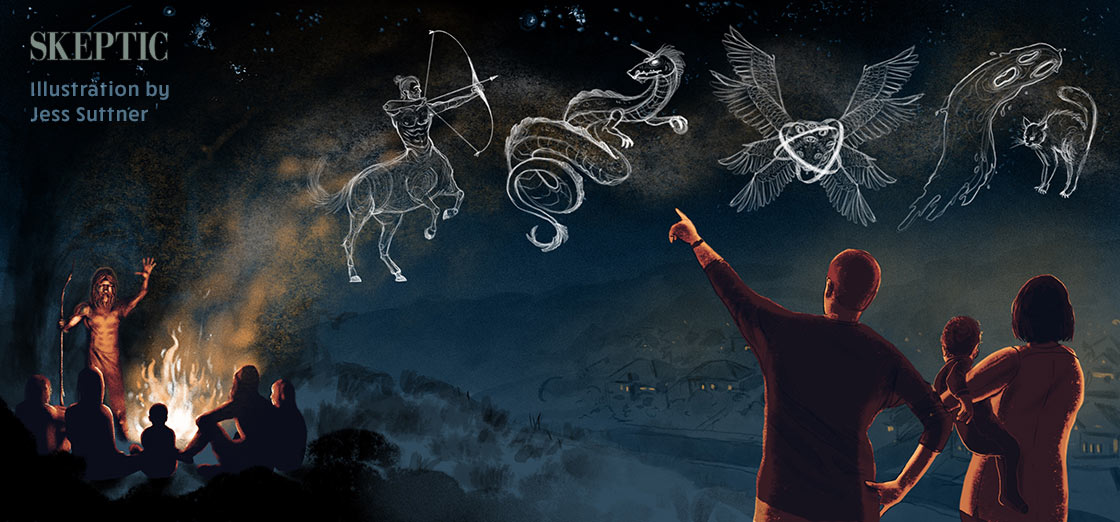
Long before science came of age in the Scientific Revolution of the 16th and 17th centuries, religion had been struggling to make sense of the world for millennia. Sometimes they got it right, but mostly they had no idea how the world works and had no systematic method to determine as much. This article explores the relationship between science and religion in terms of what was known back then and what is known now.

Holy relics like the Ark of the Covenant, Moses’s Ten Commandment stone tablets, the Holy Grail, the chalice from which Jesus drank at the Last Supper, The Spear of Destiny, and the like, are the stuff of myth, legend, Hollywood movies, and even Nazi villains, but what is the real story behind the myths? In this insightful analysis Skeptic magazine religion editor Tim Callahan reveals what we know and don’t know about these legendary icons.
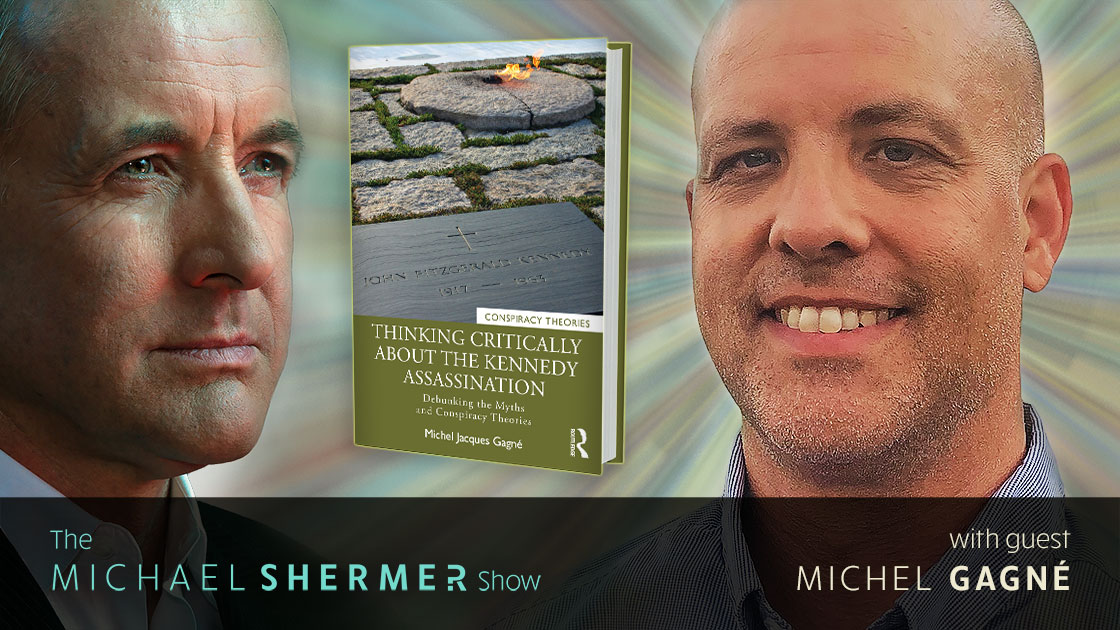
As we approach the sixtieth anniversary of the violent public assassination of President John F. Kennedy, over half of all Americans surveyed continue to believe that he was killed by a conspiracy involving multiple assassins. Shermer and Gagné discuss: conspiracies and conspiracy theories; what role conspiracy theories play in society; who believes them and why; why conspiracy theorists rewrite the past; Trump and rigged election; Obama Birtherism; and more…
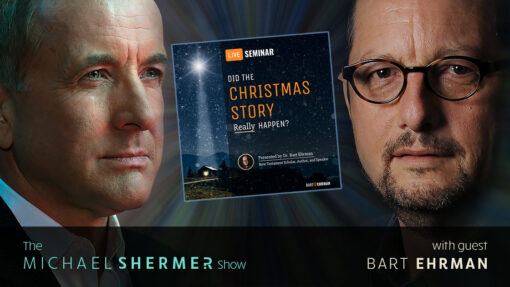
In episode 230, Michael Shermer speaks with renowned biblical scholar and historian Bart Ehrman about how Jesus became God and how Christianity grew from a few dozen followers at the time of Jesus’s death to over two billion followers today.
In episode 230, Michael Shermer speaks with renowned biblical scholar and historian Bart Ehrman about how Jesus became God and how Christianity grew from a few dozen followers at the time of Jesus’s death to over two billion followers today.

In episode 177 of Michael Shermer’s podcast, he speaks with neuroscientist and literature professor Dr. Angus Fletcher about 25 of the most powerful developments in the history of literature, from ancient Mesopotamia to Elena Ferrante.
In episode 177 of Michael Shermer’s podcast, he speaks with neuroscientist and literature professor Dr. Angus Fletcher about 25 of the most powerful developments in the history of literature, from ancient Mesopotamia to Elena Ferrante. PLUS: From now through May 3, 2021 all print and digital back issues of Skeptic magazine are on sale for only 99 cents each! Now is the time to complete your collection!

Michael Shermer and Jordan Peterson discuss: the balance between chaos and order • Maps of Meaning • truths: objective, subjective, historical, political, religious, and literary • why all countries aren’t democracies • the appeal of populist, authoritarian leaders • the danger of assessing according to race, sex, class and power • oppression-redemption myths • how Peterson’s dark dreams and mental health issues inform his worldview as tilting toward the darker side of humanity.
In episode 174, join Michael Shermer and Jordan Peterson (bestselling author of 12 Rules for Life) for this extraordinary conversation based on Peterson’s new book Beyond Order. PLUS: Save 40% on new digital subscriptions to Skeptic Magazine via Pocketmags.com, now through April 27, 2021!
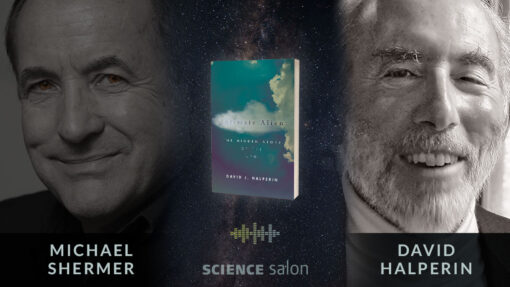
In Science Salon # 124 Michael Shermer speaks with David J. Halperin about what our fascination with UFOs tells us about ourselves as individuals, as a culture, and as a species.
In Science Salon # 124 Michael Shermer speaks with David J. Halperin about what our fascination with UFOs tells us about ourselves as individuals, as a culture, and as a species.
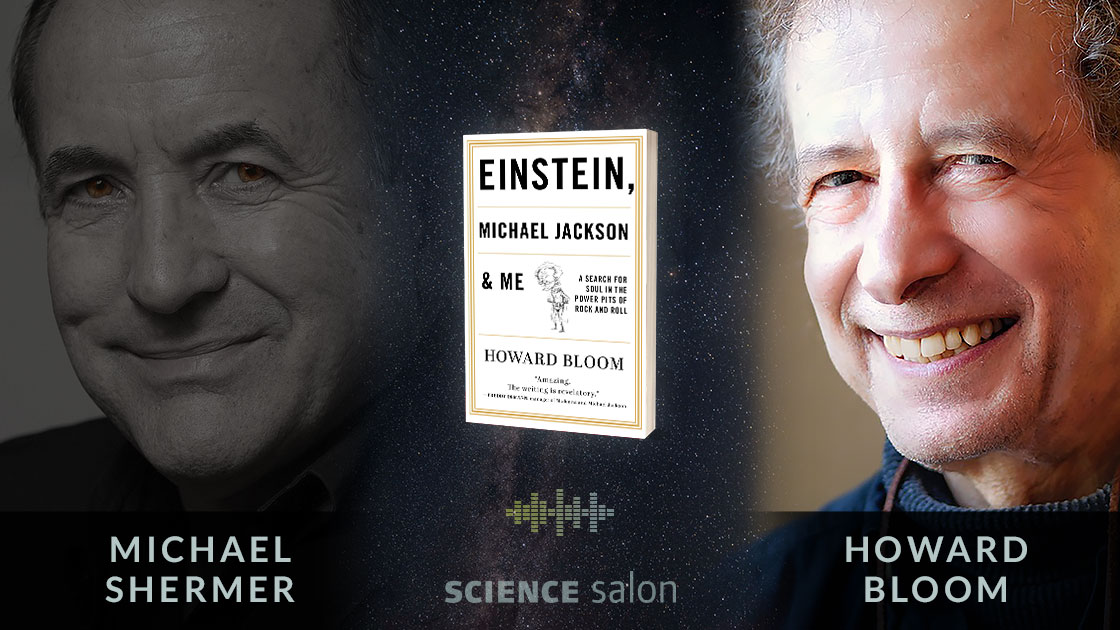
Howard Bloom — called “the greatest press agent that rock and roll has ever known” — is a science nerd who founded the biggest PR firm in the music industry and helped build or sustain the careers of rock-and-roll legends: Michael Jackson, Prince, Bob Marley, Bette Midler, Billy Joel, Billy Idol, Paul Simon, Peter Gabriel, David Byrne, AC/DC, Aerosmith, Queen, Kiss, Grandmaster Flash and the Furious Five, Run DMC, ZZ Top, Joan Jett, Chaka Khan, and one hundred more. What…
In Science Salon # 119 Michael Shermer speaks with Howard Bloom about his book Einstein, Michael Jackson, and Me: A Search for the Soul in the Power Pits of Rock and Roll. PLUS, we examine free speech and censorship in Skeptic Magazine 25.2 (2020): Giving the Devil His Due, available now in print and digital formats.
In this lecture on Evolution and Creationism (Part 1), Dr. Michael Shermer takes viewers to the Galápagos Islands to retrace Darwin’s footsteps and show that, in fact, Darwin did not discover natural selection when he was there in September of 1835. He worked out his theory when he returned home, and Shermer shows exactly how Darwin did that, along with the story of the theory’s co-discoverer, Alfred Russel Wallace.
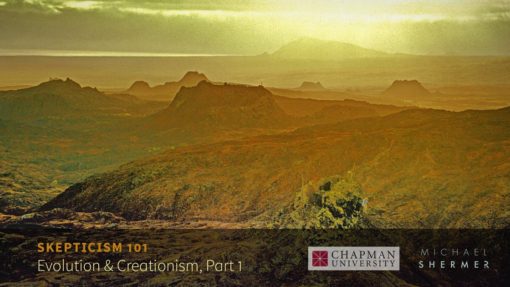
In this lecture on Evolution and Creationism (Part 1), Dr. Michael Shermer takes viewers to the Galápagos Islands to retrace Darwin’s footsteps and show that, in fact, Darwin did not discover natural selection when he was there in September of 1835. He worked out his theory when he returned home, and Shermer shows exactly how Darwin did that, along with the story of the theory’s co-discoverer, Alfred Russel Wallace.
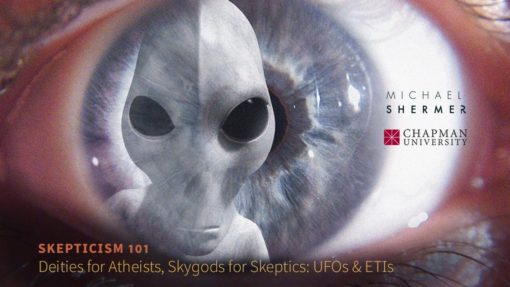
Dr. Michael Shermer distinguishes between two questions: (1) Are extraterrestrial intelligences (ETIs) out there somewhere in the cosmos? and (2) Have aliens come here? Evidence for both questions is considered in the larger context of why the issue so compels us to answer it almost religiously.
NEXT →





















